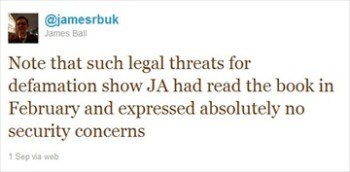
James Ball, a Guardian reporter and former WikiLeaks member, claimed that the leaked file of unredacted cables isn't "the same" as the one the Guardian viewed last year. But, the file does share the same password, according to Ball. (credit: Twitter)
WikiLeaks began publishing from its cache of 250,000 + leaked U.S. diplomatic cables last November. Initially, the leak-publishing website linked up with five news outlets to release the documents. With those news outlets, the diplomatic cables were redacted to remove reportedly sensitive information and names.
In past months the cables and WikiLeaks haven’t gotten nearly the attention that the initial Cablegate publication brought. For example, Julian Assange’s July extradition appeals hearing seemed to be overshadowed by revelations in the News of the World phone hacking scandal.
But, WikiLeaks has gotten more spotlight and headlines the past week as former WikiLeaks-er Daniel Domscheit-Berg announced he had “shredded” more than 3,000 unpublished documents obtained by WikiLeaks. Then, two German newspapers – Der Frietag and Der Spiegel – claimed that an entire, unredacted copy of the diplomatic cables comprising “Cablegate” had been published online with an easily located password. And, WikiLeaks itself stepped up its cable publishing, posting 130,000+ documents — not redacted — only to have its site attacked by distributed denial of service attacks.
WikiLeaks Accuses Guardian of Breaking Agreement, Guardian Denies
Yesterday, WikiLeaks accused the Guardian, a former member of what WikiLeaks called its group of “media partners.” According to WikiLeaks, a copy of all of the diplomatic cables — unredacted — had been published online as the German newspapers had reported. And, the password to that file was made public by Guardian reporter David Leigh, according to WikiLeaks.
WikiLeaks claims that Leigh provided the password in the Guardian’s early 2011 book on its relationship with WikiLeaks.
The New York Times reported that Leigh told the Times that the password was in the book because he was told by Assange it would “expire after a few hours.” As such, Leigh reportedly commented that “Assange was responsible for any breach.”
At the time of the book’s February publication, Assange alleged defamation and claimed he was bringing legal action forth against the Guardian, but the Guardian rejected those claims noting it hadn’t received any legal papers at least as of April 2011.
Assange didn’t, at the time of the book’s publication, accuse the newspaper of violating a contractual agreement by revealing the password, which Assange is claiming now, according to tweets from former WikiLeaks staff member and current Guardian reporter James Ball. Also, Ball commented that “Personal banking sites tell you not to reuse passwords. WikiLeaks doing the same for a file of such sensitivity is gross negligence.”
In tweets, WikiLeaks alleged “This is the Guardian’s hacking scandal. At the center, bizarrely, the Guardian journalist who confessed to phone hacking.”
WikiLeaks denied that the “passphrase was temporary or was ever described as such. That is not how PGP files work. Ask any expert” and continued to allege that “David Leigh constantly lies.”
According to the Guardian, last year, “the embassy cables were shared with the Guardian through a secure server for a period of hours, after which the server was taken offline and all files removed, as was previously agreed by both parties…Unknown to anyone at the Guardian, the same file with the same password was republished later on BitTorrent.”
Journalism.co.uk reported that a spokesperson for the Guardian commented that the Guardian’s WikiLeaks book didn’t provide “details of the locations of the files” and the password was published because the Guardian was “told it was a temporary password” only useful for a few hours. That spokesperson claimed that not only did no issues arise from the book’s publication, WikiLeaks didn’t “remove the files” in the time since the book’s February publication.
WikiLeaks Claims Cablegate “Most Significant Political Doc”
WikiLeaks claimed its publication of the leaked documents in “Cablegate” has prompted “the Arab Spring” and “has been laying the ground for positive political change all over the world.” WikiLeaks claimed its publication process includes redaction of certain names and “involves a sophisticated procedure of packaging leaked US diplomatic cables up into country groups or themes, such as ’resources corruption’, and providing it to those organizations that agreed to do the most research in exchange for time-limited exclusivity.”
WikiLeaks issued what it called a “Statement on the betrayal of WikiLeaks passwords by the Guardian.” In the statement, WikiLeaks alleged David Leigh broke “a signed security agreement with the Guardian’s editor-in-chief Alan Rusbridger” by providing “top secret decryption passwords.” WikiLeaks called the leak “a previously undetected act of gross negligence or malice” and claimed it had “commenced pre-litigation action.”
WikiLeaks also issued an “editorial” on its website claiming that “Knowledge of the Guardian disclosure has spread privately over several months but reached critical mass last week.” WikiLeaks added that it couldn’t “comment on what has happened” until now despite having known “for the past month.” Because the leak has since been reported, WikiLeaks noted it was commenting now.
WIkiLeaks claimed the Cablegate documents are “the most significant political document ever published” and claimed that the leaked documents compromised “revolutions and reforms.”
WikiLeaks also claimed that Leigh “recklessly” and intentionally gave the passwords. Further, WikiLeaks suggested that Leigh acted under deadline pressure. According to WikiLeaks, it “severed future projects with the Guardian” in December 2010 following the Guardian’s sharing of the Cablegate documents with the New York Times.
The Guardian stated that on August 4, Assange met with the Guardian in a taped “two-hour meeting,” during which the Guardian claims “Not only did Assange never mention the supposed security leak, he proposed working with the Guardian again on specific future projects.”
WikiLeaks and the State Dept.
WikiLeaks also stated that it discussed the leaked document with State Department legal adviser Cliff Johnson.
Despite WikiLeaks’ statement that it contacted the U.S. State Department in a 75-minute phone call, the Associated Press reported that the State Department noted it doesn’t work with WikiLeaks. The U.S. State Department did confirm that WikiLeaks gave it a heads-up about the cable publication, but “stressed that it was in no way cooperating with the anti-secrecy group whose actions it said threatened national security and the safety of confidential informants.”
The State Department noted in that Associated Press report that “We are not cooperating with them.”
Der Spiegel
According to Der Spiegel – also considered a “media partner” by WikiLeaks, the whole situation of an entire cache of unredacted diplomatic cables, which the U.S. State Department has continued to condemn the release of, is just a “catastrophe” set into motion by careless actions, mistakes and failed relationships.
Der Spiegel detailed what it calls “a series of mistakes made by several different people.” According to Der Spiegel, this situation could suggest the end of leak publications websites. Der Spiegel wrote:
“A chain of careless mistakes, coincidences, indiscretions and confusion now means that no potential whistleblower would feel comfortable turning to a leaking platform right now. They appear to be out of control.”


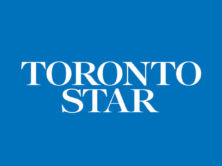
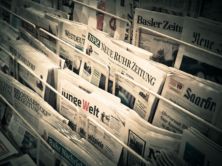

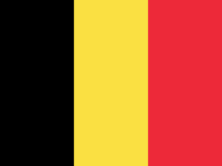
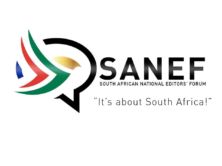
Comments Terms and Conditions